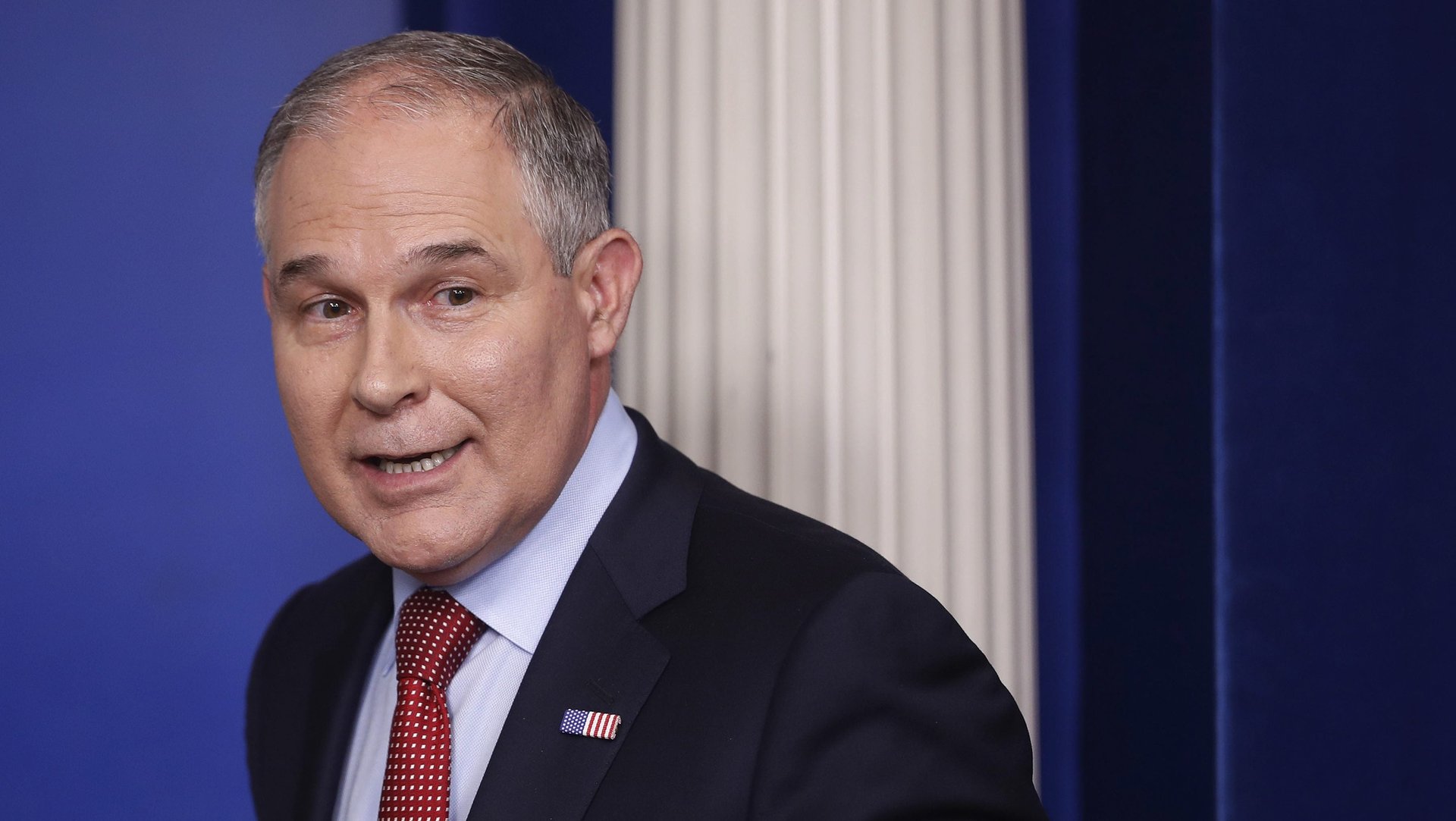The US’s top environmental official launched a program to formally challenge climate change science
Scott Pruitt has been busy. The head of the US Environmental Protection Agency has moved to dismantle or delay 30 environmental rules in his first four months on the job, the fastest rollback of that scale the EPA has ever seen, according to the New York Times. Most of these rollbacks were announced with some fanfare. But more quietly, Pruitt has begun to put together a formal program to challenge the scientific consensus on climate change.


Scott Pruitt has been busy. The head of the US Environmental Protection Agency has moved to dismantle or delay 30 environmental rules in his first four months on the job, the fastest rollback of that scale the EPA has ever seen, according to the New York Times. Most of these rollbacks were announced with some fanfare. But more quietly, Pruitt has begun to put together a formal program to challenge the scientific consensus on climate change.
First reported by E&E News, a news outlet focused on energy and the environment, the program will highlight uncertainty within climate science by providing a “back-and-forth critique” between experts appointed by the administration, according to a senior administration official who spoke with E&E News. The program will use a military tactic known as “red team/blue team,” used to scrutinize weaknesses in field operations. The red team will pose potential vulnerabilities, and the blue team would be charged with finding and defending the scientific reports that address that vulnerability.
This approach goes outside the existing structure of peer review, in which a scientific paper must be evaluated and critiqued by other scientists at length before it can be published. The peer review process is designed to identify weaknesses in the science. Within peer-reviewed scientific literature, 97% of scientists agree that climate change is primarily due to human activity.
As PBS Newshour host Hari Sreenivasan put it, if one wanted to take the “red team/blue team” approach proportionate to scientific consensus, it would be “red team: three, and blue team: 97.”
The program may foretell an attempt to completely revise the entire legal basis for curbing emissions in the US. Coal industry executives took the news of the program as a sign that the administration is willing to reassess the “endangerment finding,” which is the legal basis for any policy that limits emissions from power plants and cars in the name of curbing global warming. The EPA finding, which is backed up by a US Supreme Court decision in 2009, reads that greenhouse gases “endanger the public health and welfare of current and future generations” by propelling climate change.
Overturning that would open the door to halting all US attempts to slow climate change through emissions reductions. Pruitt previously appeared reluctant to fight it, but according to coal company CEO Robert Murray, of Murray Energy Corp, Pruitt spoke to him personally and assured him the endangerment finding would be reviewed within months.
“We talked about that, and they’re going to start addressing it later this year,” Murray told E&E News. “They’re going to start getting a lot of scientific people in to give both sides of the issue.”